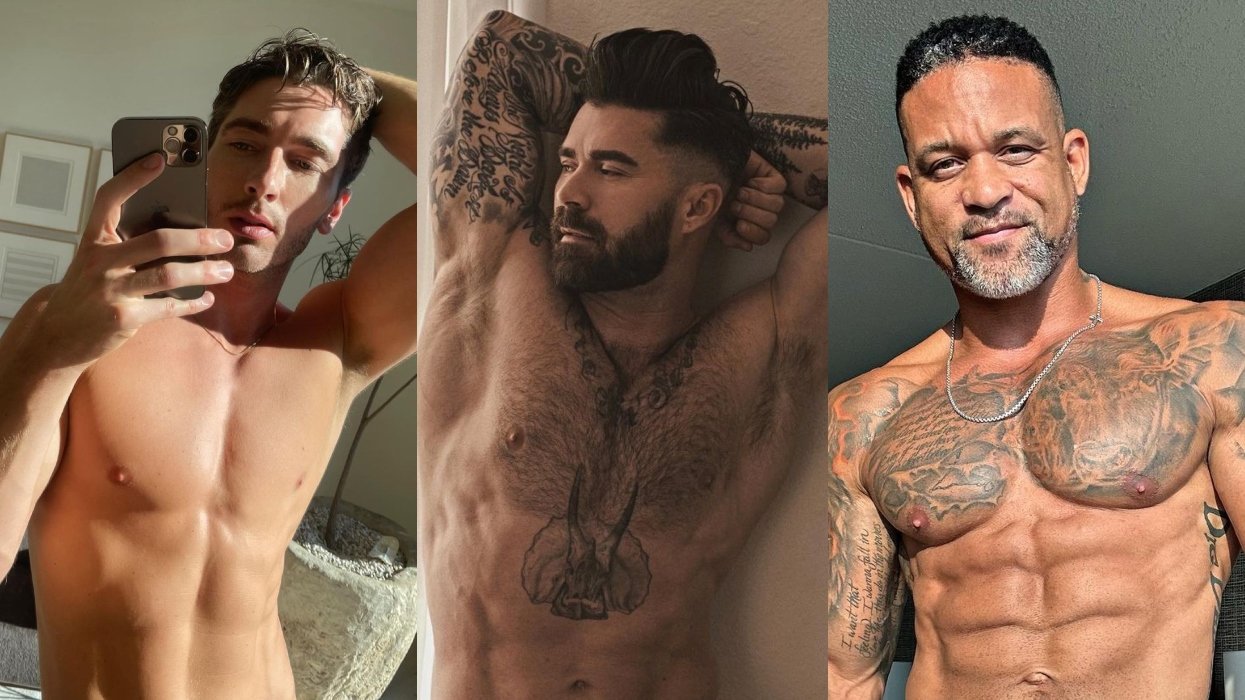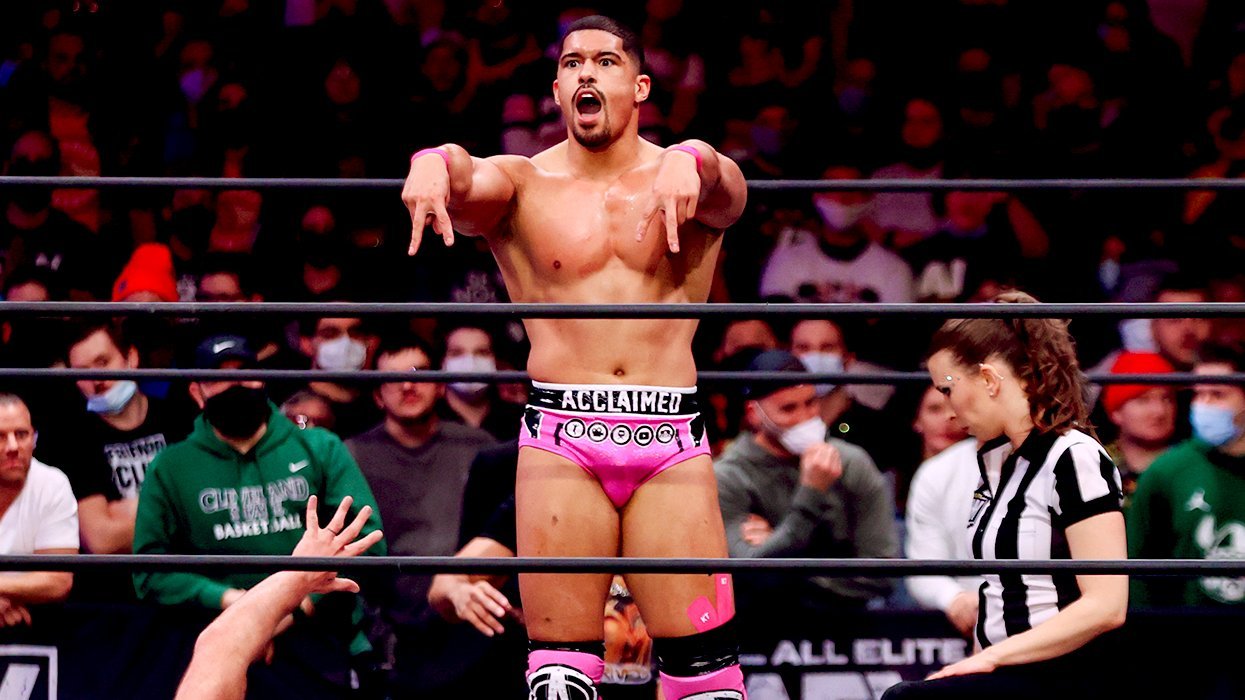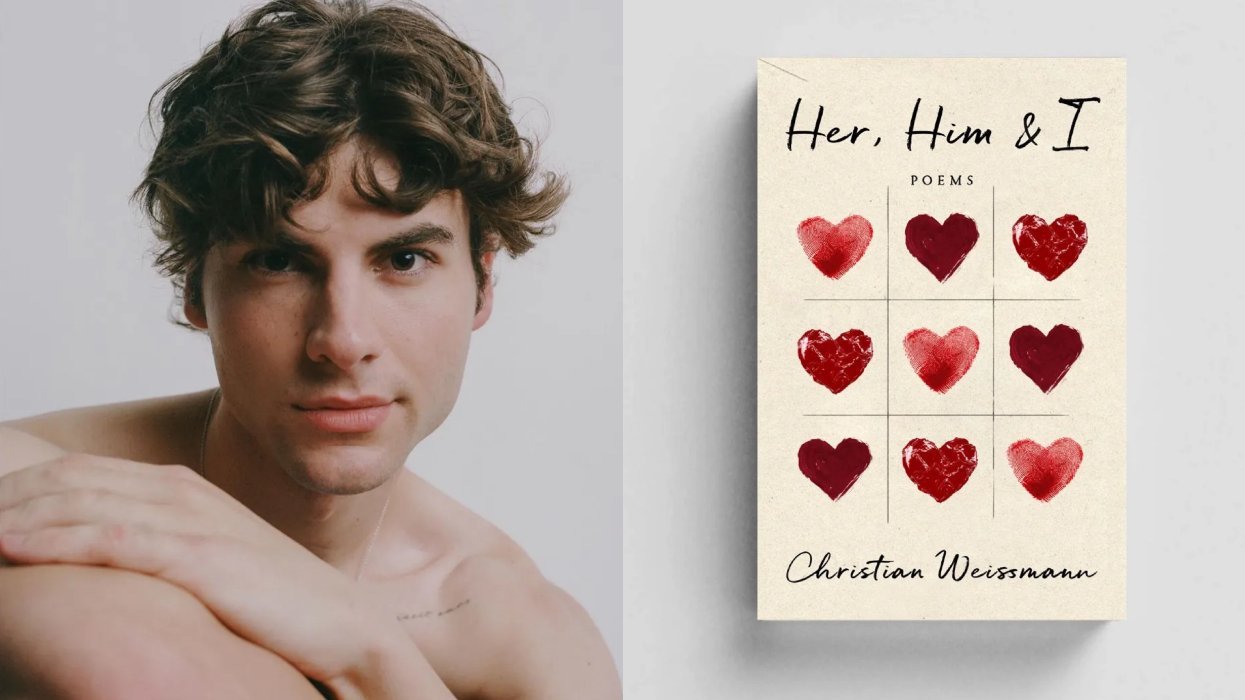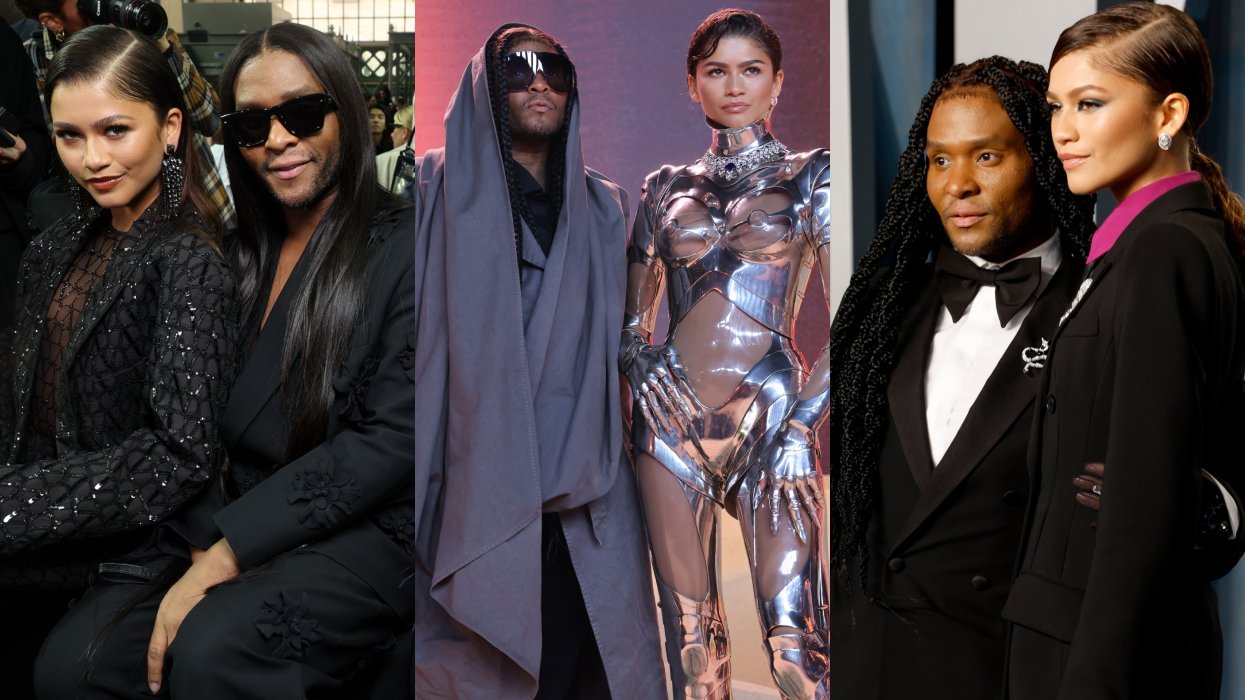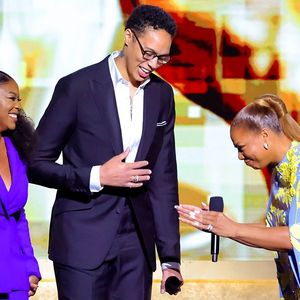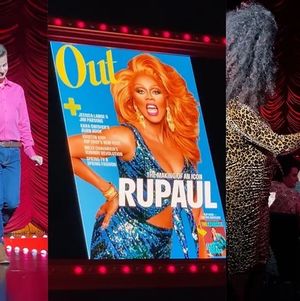Photographs of modern Mayan-inspired wedding courtesy Oasis Sens
Let me be honest: Weddings don't really interest me. I was never one of those young girls--or boys--who daydreamed and scrapbooked about a future "special day." Marriage, commitment, family--these things I understand, and even (eventually) aspire to. But spending ghastly amounts of money--or, at the very least, an absurd amount of time--on planning, organizing, and executing the events of a single day always struck me as a foolish way to launch what would (hopefully) be a lifetime with someone.
So when I sat down to read psychotherapist Mark O'Connell's recently published Modern Brides & Modern Grooms: A Guide to Planning Straight, Gay, and Other Nontraditional Twenty-First-Century Weddings (available now), my hopes for personal engagement, so to speak, were undeniably low. As a longtime reader of O'Connell's work--which has regularly appeared in publications from Psychology Today to HuffPo (as well as Out)--I had no doubt the book would be witty, insightful, and informative. What I didn't expect, was for it to be either relevant or useful to one who, like me, is about as far from planning a wedding as one can get. I couldn't have been more wrong.
When I first picked up O'Connell's book, I had recently ended a(nother) year-long relationship. Well, I'll make like an anthropologist observing another species, I thought to myself, anticipating the vaguely uncomfortable bitterness that comes from encountering "perfect" couples shortly after a break-up (there must be a German word for being pained by the happiness of others?--inverse Schadenfreude?). Since people love lists, here's the top 10 reasons why I think you should read Modern Brides & Modern Grooms -- regardless of your current relationship, engagement, or marital status.
10.To my surprise, I found the therapeutic advice and analysis O'Connell offers to be consistently enlightening even for my own relationship wreckage--despite generally being pitched within the context of marital preparation. In Chapter four, for example, O'Connell lays out a fascinating theory of complementary emotional roles that develop in all relationships, which he terms "the engulfed" and "the abandoned." Take his quiz (more on the quiz thing later!) to find out which role you tend to play--and I defy you not to immediately see the patterns he describes in your own relationship(s).
9. O'Connell is both a therapist and an accomplished actor -- and this theatrical background continuously informs his keenly perceptive take on the dynamics of relationships. Plus, his thoughtful advice on preparing for the actual "performance" of a wedding (advice which might apply equally to many large, multi-faceted events involving "staging," "costuming," and public speaking). People tend to (often falsely) equate authenticity and genuineness with spontaneity; O'Connell points out that in the context of a wedding, attempting a spontaneous performance or speech can prove disastrous--or at the very least, tedious or embarrassing. "Weddings are theater," he explains, "and acknowledging this will focus your planning." Having endured a few cringe-inducing, off-the-cuff wedding speeches--mumbled semi-drunkenly by generally charismatic and well-spoken folks who thought they could just "wing it"--I suspect we would all benefit from recognizing the performative aspects of such ceremonies, whether that means leaning a dance, rehearsing complex logistics, or carefully preparing a speech.
 8. In these happy days of protracted recession, it's refreshing to see a budget-conscious guide to what is often one of the most lavish and--dare I say it--wasteful events in many people's lives. Yet O'Connell finds a way to make budget-consciousness fun (yes, really!): throughout his guide, he offers countless tips for how you might personalize, improvise, and DIY your way to a more affordable and intimate event. If money and sex are the two primary subjects people consistently shy away from discussing in mixed (or, well, any) company, O'Connell's book deserves major props for being wonderfully forthright about both (more on the sex part later). The book's appendix even includes a sample budget chart, describing the financing of his own wedding, down to the penny!
8. In these happy days of protracted recession, it's refreshing to see a budget-conscious guide to what is often one of the most lavish and--dare I say it--wasteful events in many people's lives. Yet O'Connell finds a way to make budget-consciousness fun (yes, really!): throughout his guide, he offers countless tips for how you might personalize, improvise, and DIY your way to a more affordable and intimate event. If money and sex are the two primary subjects people consistently shy away from discussing in mixed (or, well, any) company, O'Connell's book deserves major props for being wonderfully forthright about both (more on the sex part later). The book's appendix even includes a sample budget chart, describing the financing of his own wedding, down to the penny!
7. Another enjoyable aspect of this book is that it is festooned with entertaining personal anecdotes. Throughout the various wedding pointers, tips, and suggestions O'Connell offers, he weaves the story of his 2006 union to his husband, Justin. Once again, O'Connell's strength lies in his willingness to discuss the challenges and messiness that most glossy wedding guides undoubtedly wouldn't touch with a (Photoshopped) 10-foot pole. Not only does he thoroughly and openly explore the many potential problems one might encounter when planning such a significant event, he uses his own experience to illustrate his advice--even when it gets ugly. This willingness to expose his own struggles allows him to offer suggestions that come across as a sympathetic, non-judgmental friend, rather than an aloof, impartial clinician.
6. Let's get back to the sex. Now admittedly, I haven't read a lot of wedding guides in my day, but I'm willing to bet that most of them don't unreservedly address the evolution of your sexual relationship with your partner--both before and after marriage. The last thing most people probably want to think about as they plan their "special day" is that their wedding bells might also be the death knell for their sex life. "There is a pervasive shame that corrodes the sex life of every long-term couple," O'Connell acknowledges, and one need only listen to a few episodes of Dan Savage's Lovecast to get very graphic confirmation of his point. O'Connell's book, however, is quick to offer many ways one can seek support and connection from friends or professionals to avoid falling into such a shame trap--both prior to, and for many years following, a wedding.
5. O'Connell's text is an endlessly entertaining mix of high & low--with respect to culture, tone, and humor. Anyone who can seamlessly weave together a quote from Beckett's Worstward Ho, a layered allusion to Elizabeth Taylor's marital history, and an invocation of a Nina Garcia-y Project Runway-esque fashion critique all on the same page is worth reading. Period.
4. This book is filled with stories: stories of patients, stories of family, stories of friends. As previously noted, the many twists (thanks, among other obstacles, to the still "evolving" legality of gay marriage) that comprised O'Connell's own marital tale. The effect of this abundance and variety of stories is remarkable: by approaching the subject of relationships, weddings, and marriage from so many differing perspectives, O'Connell doesn't just tell us about the importance of empathy, he actually shows us how to empathize. Take, for example, the now fraught issue of "giving away" the bride (its symbolism is beyond suspect if you actually think about it): through a series of wedding stories--between gay men, couples of mixed religious beliefs, a lesbian couple, a couple whose parents are no longer alive to "give away" the bride-- he places his readers in such an array of positions that we can understand the frustrations and desires of others, even when they are markedly different than our own.
3. Good luck maintaining empathy when facing your own family conflicts. As many of us are still recovering from visiting with family for our holiday(s)--my family isn't religious, but will celebrate anything that involves festively sanctioned gluttony) of choice, I'm sure I needn't remind you how challenging it can be to maintain civility when thrown together with family for prolonged periods. O'Connell's book offers versatile, realistic advice on grappling with the tense family conflicts that inevitability arise when organizing an event like a wedding. His family tension-diffusing techniques served me well during Chrismukkah, 2014.
2. Did I mention there are quizzes? I'm not talking anything too dry and academic, or too pop and Cosmopolitan-esque. Instead, O'Connell's book provides a smattering of exercises, dialogues, and quizzes interspersed throughout that strike a delicate balance between these poles, acting as a perfect complement to the central text.
1. Finally, the most impressive aspect is the book's inclusivity. Not only could it be used as a very practical wedding guide--regardless of your religious background, income level, or sexual orientation--it could function as a broadly insightful text for anyone interested in reflecting on their relationships with family, friends, and romantic partners (past, present, or desired future). This is not a book about necessarily rejecting traditions of any shape, size, or form; rather, it is about exploring the many and various ways you can choose to make your own traditions--recognizing and celebrating the history, beliefs, and values that matter most to you.
Modern Brides & Modern Grooms is available now.
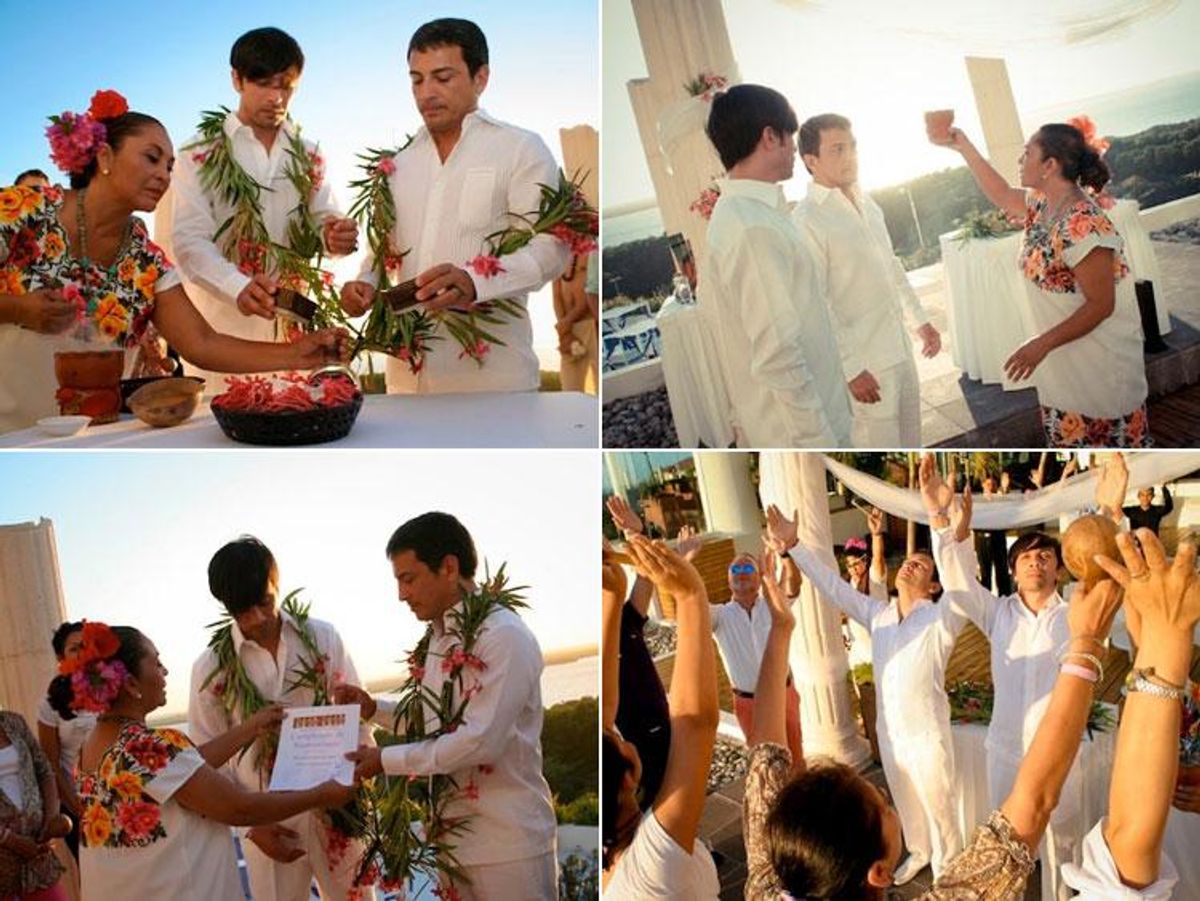



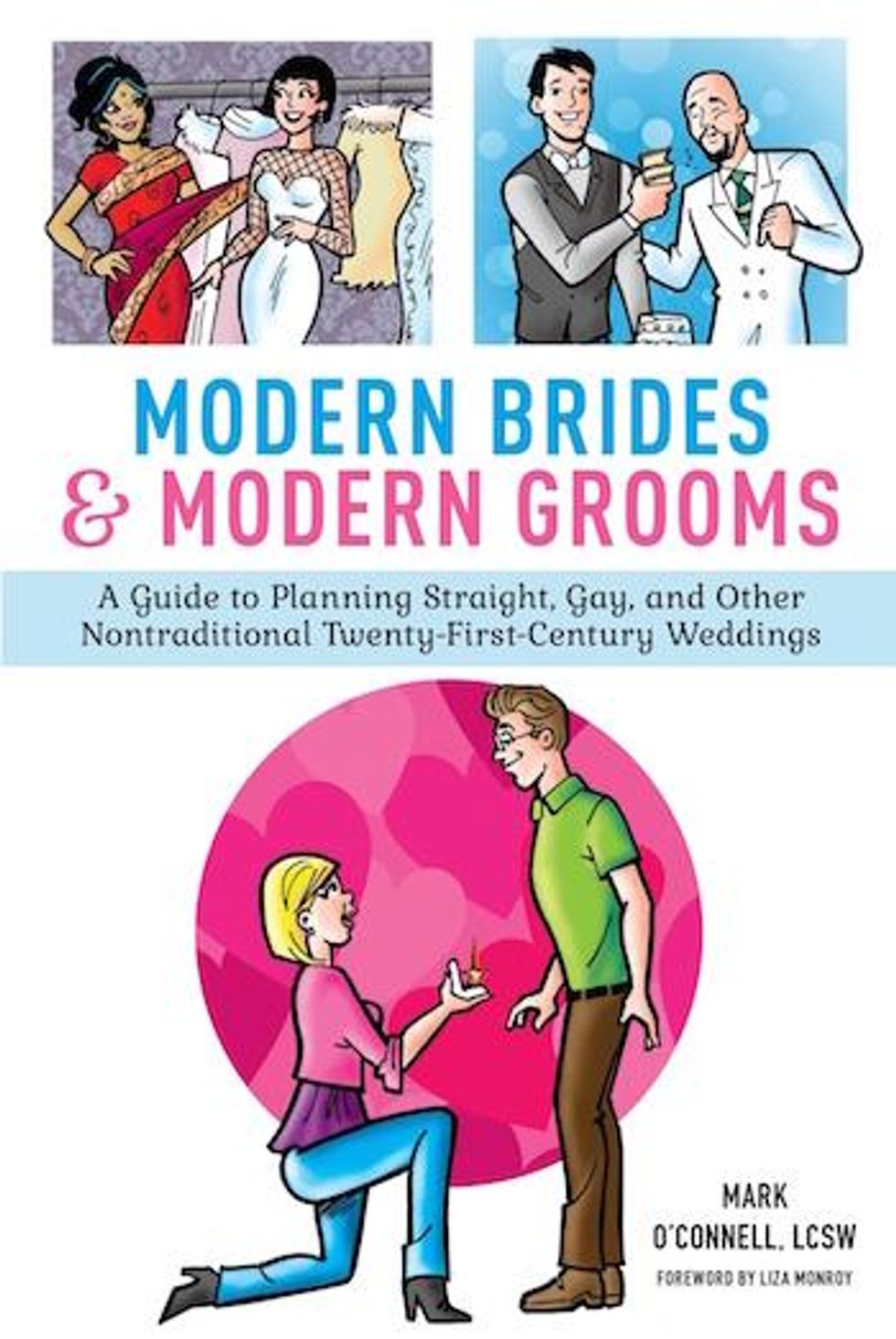 8. In these happy days of protracted recession, it's refreshing to see a budget-conscious guide to what is often one of the most lavish and--dare I say it--wasteful events in many people's lives. Yet O'Connell finds a way to make budget-consciousness fun (yes, really!): throughout his guide, he offers countless tips for how you might personalize, improvise, and DIY your way to a more affordable and intimate event. If money and sex are the two primary subjects people consistently shy away from discussing in mixed (or, well, any) company, O'Connell's book deserves major props for being wonderfully forthright about both (more on the sex part later). The book's appendix even includes a sample budget chart, describing the financing of his own wedding, down to the penny!
8. In these happy days of protracted recession, it's refreshing to see a budget-conscious guide to what is often one of the most lavish and--dare I say it--wasteful events in many people's lives. Yet O'Connell finds a way to make budget-consciousness fun (yes, really!): throughout his guide, he offers countless tips for how you might personalize, improvise, and DIY your way to a more affordable and intimate event. If money and sex are the two primary subjects people consistently shy away from discussing in mixed (or, well, any) company, O'Connell's book deserves major props for being wonderfully forthright about both (more on the sex part later). The book's appendix even includes a sample budget chart, describing the financing of his own wedding, down to the penny!



